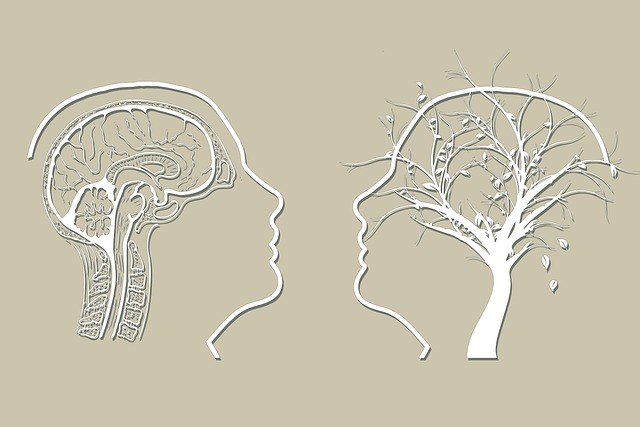Trauma from accidents, violence, or disasters significantly affects mental health, causing various symptoms. Highlands Ranch Phobias Therapy offers tailored treatments, focusing on emotional regulation and confidence-boosting exercises to address root causes of trauma-related fears and phobias. They provide safe spaces through evidence-based techniques like CBT, exposure therapy, and mindfulness, enabling clients to heal, reclaim their lives, and develop tools to overcome trauma. The center also educates communities about mental health, establishing safety and trust through non-judgmental spaces, active listening, empathy, crisis intervention, and cognitive behavioral therapy.
Trauma can have profound, lasting effects on individuals and communities. Understanding trauma’s impact is crucial for effective support services. This article explores strategies for providing compassionate, trauma-informed care, with a special focus on the role of Highlands Ranch Phobias Therapy. We’ll delve into how this specialized service addresses specific fears and phobias, offering hope and healing to those who have experienced trauma. By examining these approaches, we aim to enhance access to quality care.
- Understanding Trauma and its Impact
- The Role of Highlands Ranch Phobias Therapy in Support Services
- Effective Strategies for Providing Trauma-Informed Care
Understanding Trauma and its Impact

Trauma is a profound and complex experience that can significantly impact an individual’s mental health and daily functioning. It stems from various sources, such as severe accidents, violence, natural disasters, or prolonged exposure to distressing events. The effects of trauma are far-reaching, affecting not just the mind but also the body, often leading to a range of symptoms including flashbacks, nightmares, anxiety, and irritability. For many individuals struggling with trauma, Highlands Ranch phobias therapy offers a lifeline.
Understanding that trauma manifests differently in each person is crucial. Some may experience acute stress reactions immediately following an event, while others develop complex post-traumatic stress disorder (PTSD) over time. Self-care routine development for better mental health plays a significant role in managing trauma. Techniques like emotional regulation strategies and confidence boosting exercises can empower individuals to navigate their traumatic experiences and foster resilience. By addressing the root causes of trauma and providing safe spaces, therapeutic interventions enable clients to heal and reclaim their lives, offering them the tools to confront and overcome their fears.
The Role of Highlands Ranch Phobias Therapy in Support Services

Highlands Ranch Phobias Therapy plays a pivotal role in trauma support services by specializing in addressing specific fears and phobias that often accompany traumatic experiences. This form of therapy is tailored to help individuals confront and overcome their debilitating anxiety responses triggered by particular objects, situations, or memories related to the trauma. Through innovative techniques such as cognitive behavioral therapy (CBT), exposure therapy, and mindfulness practices, therapists at Highlands Ranch Phobias Therapy guide clients towards healing and recovery.
The center’s commitment to mental wellness is evident in its focus on building empathy within therapeutic relationships. By fostering a safe and non-judgmental space, the therapists enable clients to process their traumatic memories while developing effective coping strategies. Furthermore, Highlands Ranch Phobias Therapy contributes to public awareness campaigns development by educating communities about phobias, dispelling myths, and promoting understanding of mental health challenges. This holistic approach ensures that trauma survivors receive comprehensive support tailored to their unique needs.
Effective Strategies for Providing Trauma-Informed Care

In providing trauma-informed care, particularly within the context of Highlands Ranch phobias therapy, it’s crucial to adopt strategies that foster safety and trust. This involves creating a non-judgmental environment where individuals feel understood and respected. Crisis intervention guidance plays a pivotal role in de-escalating acute situations and helping clients regain a sense of control. By employing active listening skills, therapists can demonstrate empathy, validating clients’ feelings and experiences without minimizing their trauma.
Empathy building strategies are integral to establishing strong therapeutic alliances. This includes reflecting on clients’ emotions, sharing relevant personal experiences (when appropriate), and using open body language. Additionally, incorporating techniques like cognitive behavioral therapy (CBT) can aid in modifying unhelpful thought patterns and behaviors associated with traumatic events. Furthermore, integrating depression prevention measures is essential, as individuals with trauma histories are at a higher risk of developing depressive disorders.
Trauma support services are vital for healing and restoration, especially in communities like Highlands Ranch. By understanding trauma’s profound impact, we can appreciate the significance of practices such as phobias therapy offered by local professionals. Implementing trauma-informed care strategies ensures that individuals receive comprehensive, empathetic support. With access to effective resources, survivors can navigate their journeys towards recovery and reclaim their lives, fostering a healthier and more resilient community overall.














